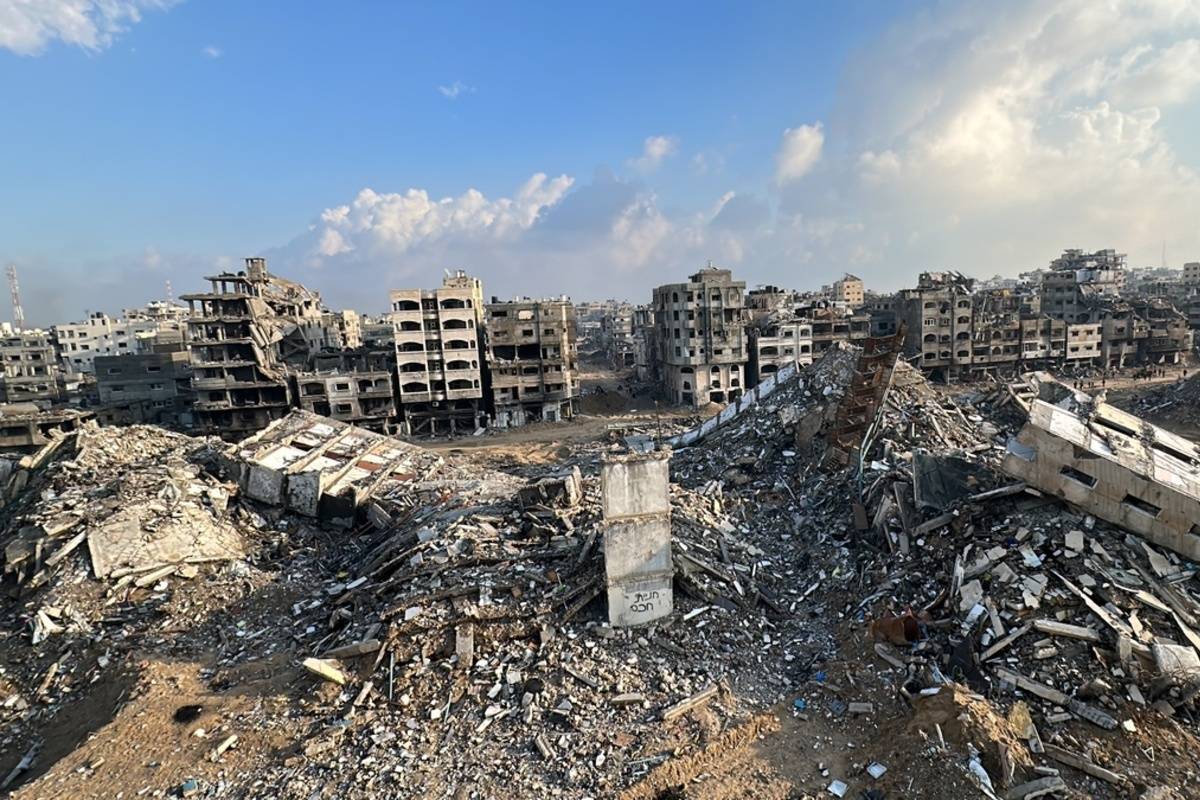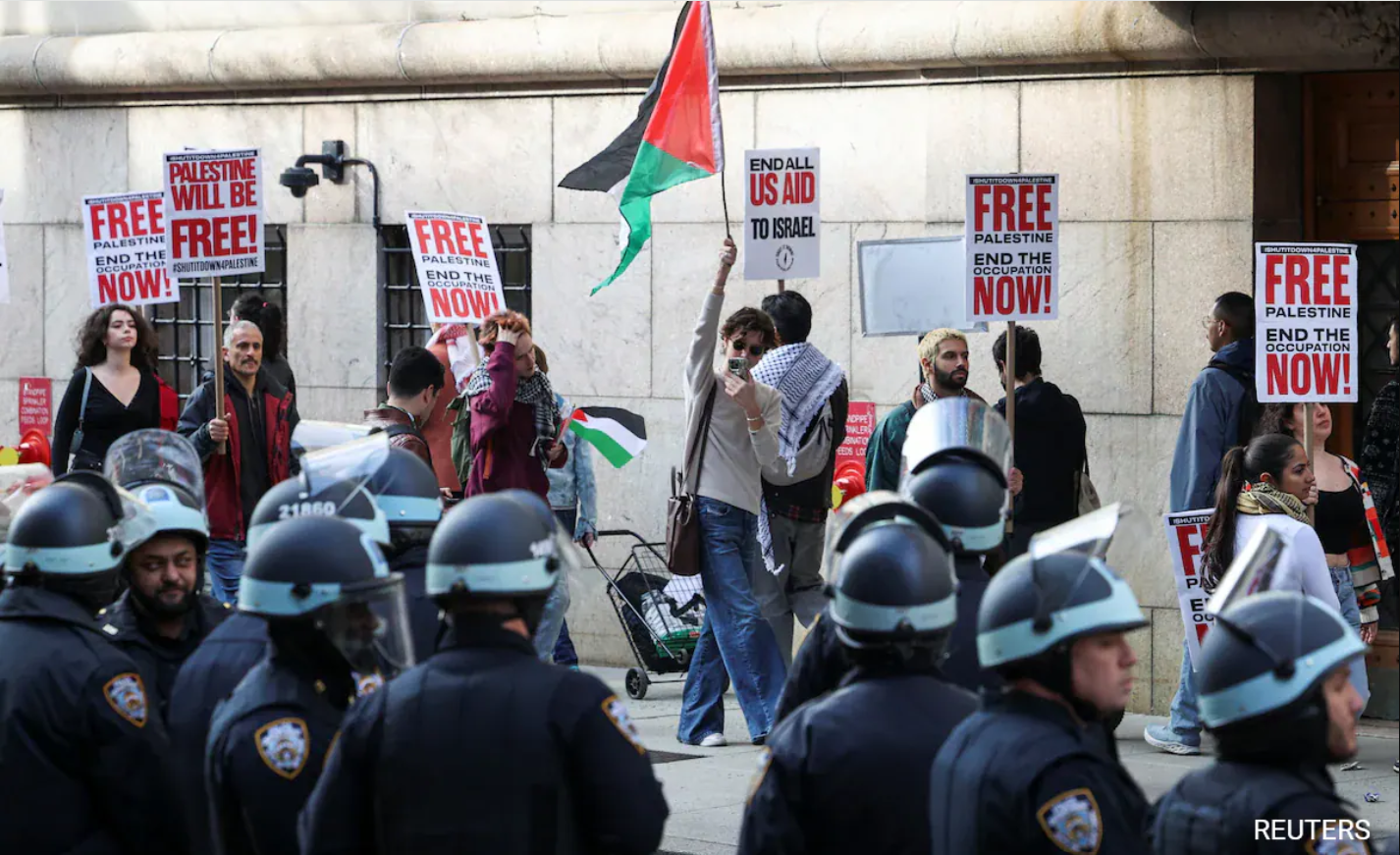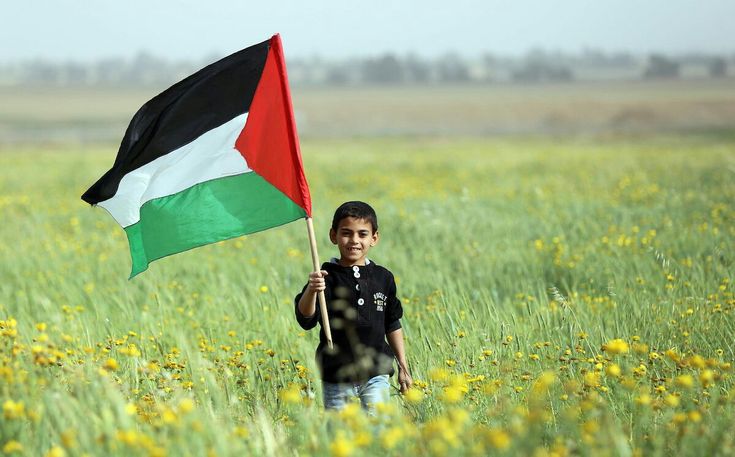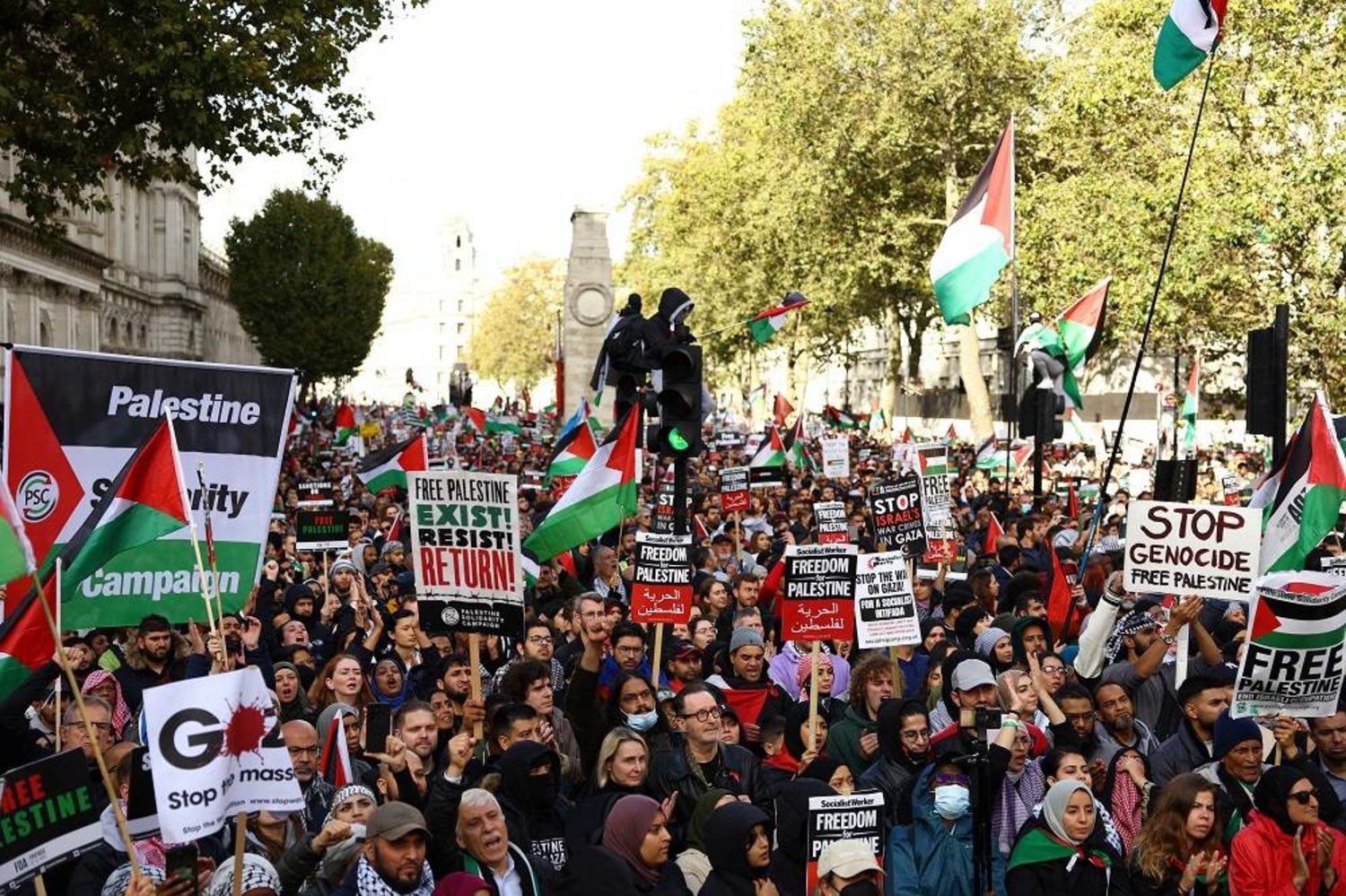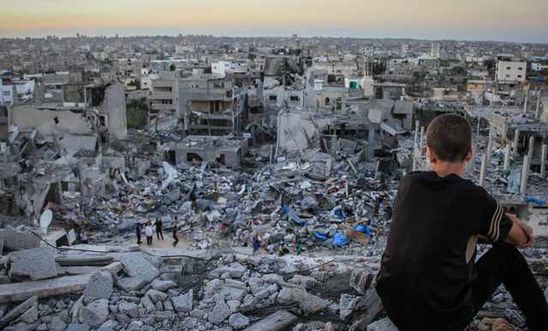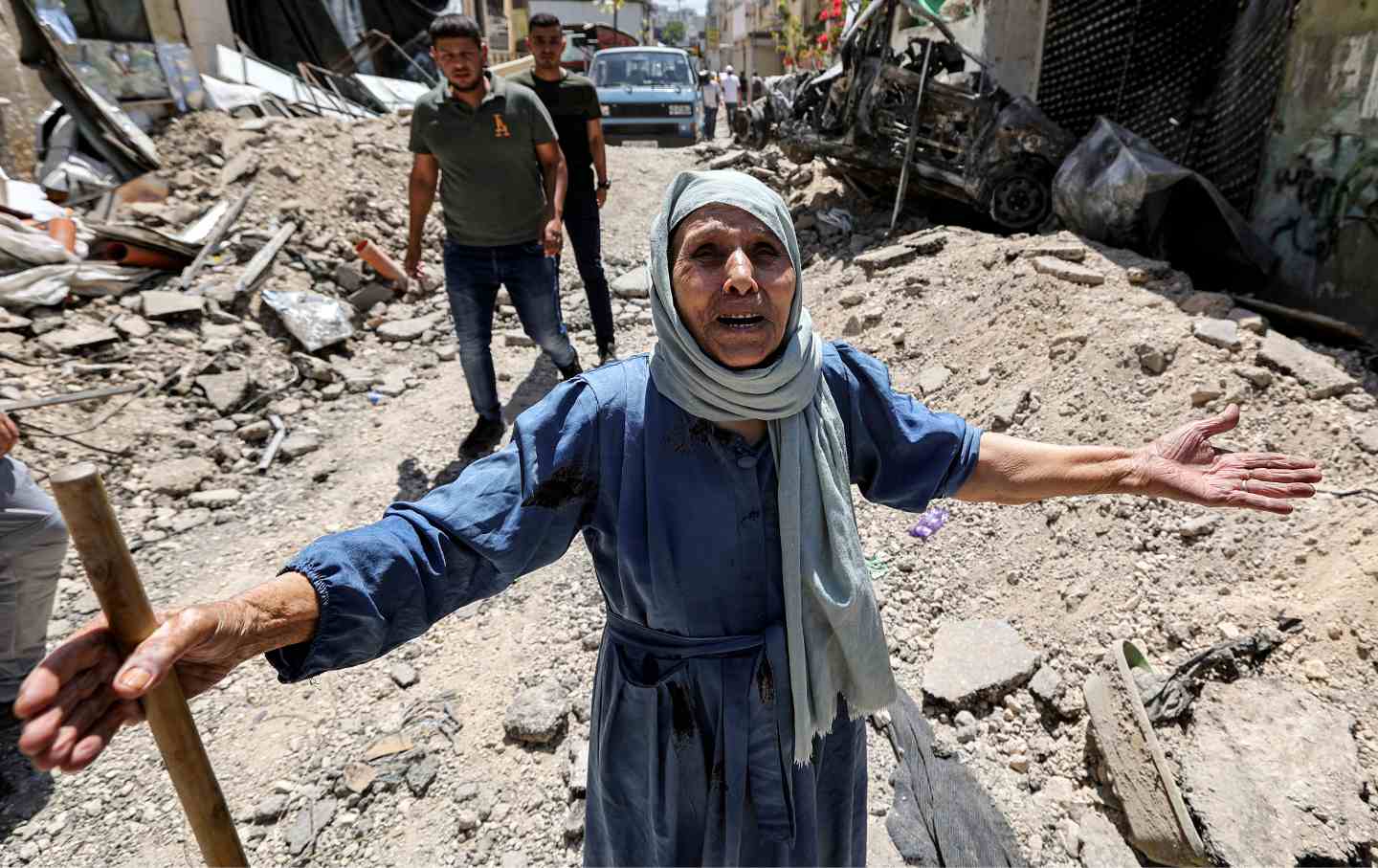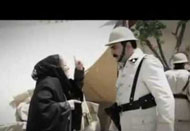
Ten o'clock rolls around each night in Ramadan and televisions are turned to MBC1 for the fourth season of Bab Al Hara (The Neighborhood's Gate). Apparently, the series is popular throughout the Arab world, but in Palestine, its popularity is over the top. For us, it is not just entertainment; it is also a reflection on our own condition.
For those of you who don’t have an inkling as to what I'm rambling about, here is a quick synopsis. Bab Al Hara is a Syrian drama series set in Damascus (circa 1930s) during the French Mandate. The series offers an array of colorful characters and scenery and a retrospective look into Arab life in Damascus decades ago. It also offers a peak into Syrian resistance, especially in this fourth season where the men and women of the neighborhood face off with the French colonizing army and swear their lives to the cause.
For us Palestinians, watching Bab Al Hara hits close to home. Especially during the scenes with the French (who for all practical purposes may as well be Israeli). In the first episode of the season, a gun battle breaks out between the people of the neighborhood and French soldiers after which several members of the occupying army are killed and others are taken hostage. What ensues is reminiscent of the days of the first Intifada (and presumably the 1936 revolt). Collective punishment (the French cut the power off of the neighborhood and clamp down a tight siege and curfew around the clock), vows of revenge and a Syrian (or Palestinian) resistance made of steel.
Another interesting dimension in the series is the character of Abu Jawdat, a Syrian-born officer in the French military. He is the equivalent of Palestinians who worked in the Israeli civil administration in the pre-Oslo years, which handled the affairs of the Palestinians under Israeli occupation. Abu Jawdat works the office, answers to the French colonial authorities and wields his own false sense of power over the people of Harret Al Daba' (the central neighborhood in the series). Because of his cooperation with the enemy, the neighborhood despises him even as they are begrudgingly forced to deal with him. He double crosses them and has no sense of affiliation with nationalist Syrians, much like those Palestinians who chose to latch on to the Israelis for their own personal benefit. I am sure, just like the Palestinians ostracized and socially discarded for collaborating with the enemy, the inhabitants of Haret Al Daba' will have no problem disposing with Abu Jawdat if and when the time comes.
Furthermore, the sense of community in the face of the adversary is very familiar to the Palestinians, as it is so markedly portrayed on Bab Al Hara. In Season 3, Abul Nar, the mukhtar (or chief) of an adjacent neighborhood is at odds with those in Harat Al Daba'. However, once this neighborhood is besieged by the French and food becomes scarce, Abul Nar and his cronies rise to the occasion, pooling efforts with the men of Haret Al Daba' to sneak in food and fuel away from the prying eyes of the French soldiers. It is the embodiment of a common Arab maxim – "Me and my brother against our cousin, but me and our cousin against a stranger." (or in this case, occupier).
What has made this season so irresistible to many Palestinians is the Palestine connection. While the previous seasons have included mention of the resistance in Palestine (trading of arms, presumably for the Palestinians to fight off the English), this season, two Palestinians joined the cast. Abu Yousef – a Palestinian Christian – and his Muslim comrade, Abu Ahmad, come to Damascus to receive weapons to take back to Palestine. They become involved in the battle with the French and ultimately, Abu Yousef, the kind-faced, young man with the distinct Palestinian accent is killed by French soldiers. As he dies, he asks his lifelong friend for a last request. "Take me back to Palestine, the place where I was born, and bury me there."
At least for me, that pulled at my heartstrings like nothing else. We have seen so many of our young men die at the hands of our occupier, young men in the prime of their lives with such fiery love for their country that they will sacrifice everything for it. Abu Yousef, in his final hour was the face of so many of our men and women who, at the time, felt a duty and an honor to offer their lives for the country they love.
It is no wonder also, why we watch Bab Al Hara and identify even with the French commander. We shudder at his cold gaze, how he calls the people of Haret Al Daba' "terrorists" and how he will stop at nothing to break their will. We scorn him just as we scorn the Israeli officer who comes knocking down our door at night to search our homes. We defy him just as we defy the Israeli soldier who demands that we surrender our comrades, our neighbors or our sons. "We know nothing," is the answer Palestinians often give during interrogation from Israeli intelligence officers and it was the answer the heroes of Bab Al Hara gave their French captors during the torturous interrogation sessions a few nights ago.
We identify with the characters of Bab Al Hara because we are in their place 70 years later. Of course we know it is just a show and the actors will all go home after shooting their scenes. But during that hour at night, we root for the revolutionaries, we cry for the martyrs and we holler insults at the French (and Abu Jawdat). Because their battle is our battle even though we know that after the French left Syria, independence finally came but after the English left Palestine, we were dealt something even worse.
Joharah Baker is a Writer for the Media and Information Program at the Palestinian Initiative for the Promotion of Global Dialogue and Democracy (MIFTAH). She can be contacted at mip@miftah.org.




